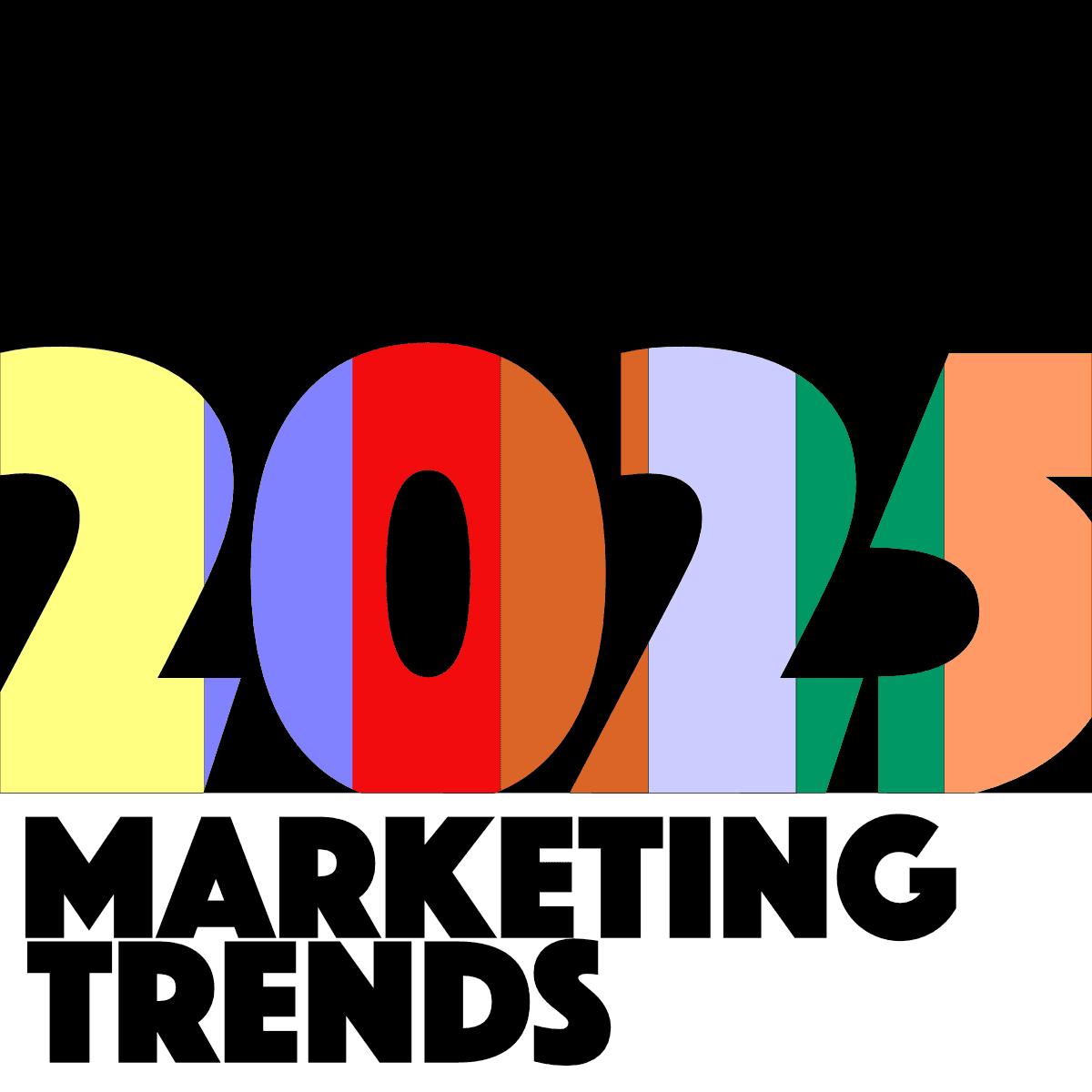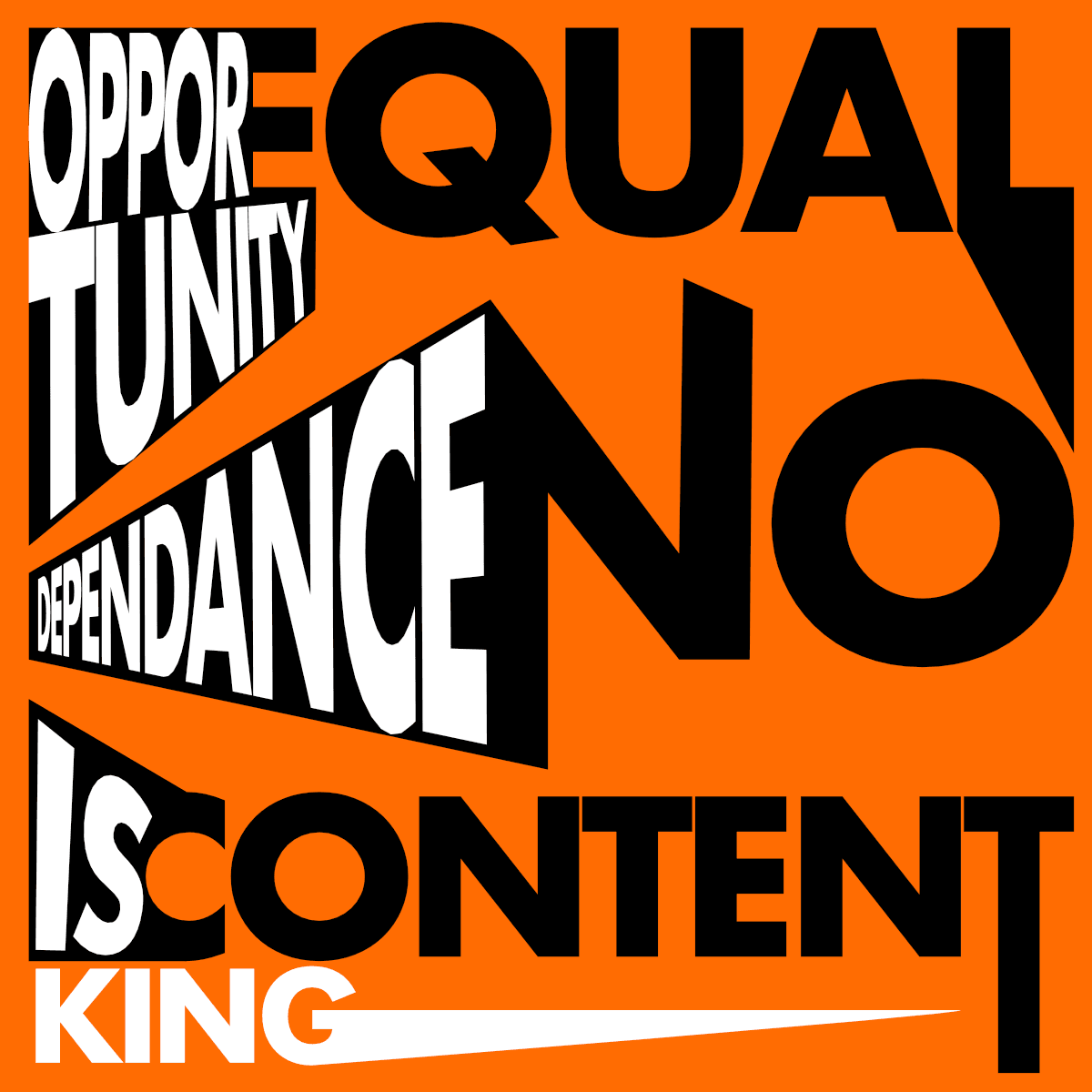
2025 Marketing Trends You Can’t Afford to Miss



You never really know what the next “big thing” will be until it’s already here. And often you look back with regret for missing out on something important because you didn’t recognize its value on time.
Well, let me tell you: the last couple of years have introduced a pivotal shift in marketing. This article will help you stay ahead of the curve, ensuring you won’t regret missing out on these transformative trends.
Let’s start with a groundbreaking change that, for the first time in a while, gives me the feeling that we’re discussing novelty rather than mere evolution in marketing trends…
You never really know what the next “big thing” will be until it’s already here. And often you look back with regret for missing out on something important because you didn’t recognize its value on time.
Well, let me tell you: the last couple of years have introduced a pivotal shift in marketing. This article will help you stay ahead of the curve, ensuring you won’t regret missing out on these transformative trends.
Let’s start with a groundbreaking change that, for the first time in a while, gives me the feeling that we’re discussing novelty rather than mere evolution in marketing trends…
You never really know what the next “big thing” will be until it’s already here. And often you look back with regret for missing out on something important because you didn’t recognize its value on time.
Well, let me tell you: the last couple of years have introduced a pivotal shift in marketing. This article will help you stay ahead of the curve, ensuring you won’t regret missing out on these transformative trends.
Let’s start with a groundbreaking change that, for the first time in a while, gives me the feeling that we’re discussing novelty rather than mere evolution in marketing trends…
Other related articles
Още интересни статии
The end of keywords and the rise of generative search
Remember when getting a high search ranking was as simple as repeating keywords in a blog post? Those days are gone. Traditional search engines have evolved to assess content more deeply, focusing on its real value and how well it matches a searcher’s intent. The Google algorithm leak revealed that over 200 factors influence search rankings.
Previously, people used short keywords to search, but that approach often brings up pages of irrelevant results. As people today naturally search with longer, more specific phrases, search engines have adapted by pulling insights from discussion platforms like Reddit, aiming to provide answers more naturally.
Traditional search engines are trying to replicate what generative AI does naturally - understanding human intent and context in search. Today’s users expect tailored, specific answers to their unique questions. Keywords alone aren’t enough.
AI goes beyond chatbots - it’s also built into our headsets, speakers, and voice-activated devices. Understanding how your customers use these and creating content suitable for voice searches is crucial.
Remember when getting a high search ranking was as simple as repeating keywords in a blog post? Those days are gone. Traditional search engines have evolved to assess content more deeply, focusing on its real value and how well it matches a searcher’s intent. The Google algorithm leak revealed that over 200 factors influence search rankings.
Previously, people used short keywords to search, but that approach often brings up pages of irrelevant results. As people today naturally search with longer, more specific phrases, search engines have adapted by pulling insights from discussion platforms like Reddit, aiming to provide answers more naturally.
Traditional search engines are trying to replicate what generative AI does naturally - understanding human intent and context in search. Today’s users expect tailored, specific answers to their unique questions. Keywords alone aren’t enough.
AI goes beyond chatbots - it’s also built into our headsets, speakers, and voice-activated devices. Understanding how your customers use these and creating content suitable for voice searches is crucial.
How do you adapt your business strategy in 2025?
In 2025, content will continue to be essential for drawing in customers and strengthening brand authority.
However, the way we find inspiration for creating content is shifting. In the past, search reports and keyword research were enough to guide content creation. Now, businesses need a design-thinking approach. Understanding your customers’ pain points and aspirations has never been more crucial. Creating unique, conversational content with a touch of your brand personality will be invaluable in 2025 and beyond.
In 2025, content will continue to be essential for drawing in customers and strengthening brand authority.
However, the way we find inspiration for creating content is shifting. In the past, search reports and keyword research were enough to guide content creation. Now, businesses need a design-thinking approach. Understanding your customers’ pain points and aspirations has never been more crucial. Creating unique, conversational content with a touch of your brand personality will be invaluable in 2025 and beyond.
Zero click marketing
Think about this:
60% of searches on Google - a link-based search engine - end without a link click.
Social media posts get demoted if they contain links. Some platforms don’t even let you share links.
Generative search engines answer users’ questions directly, so there’s no need for further “digging.”
Platforms have one goal - retaining user attention within their own space. If so, how do you drive traffic to your website to convert those leads?
The answer may be zero-click content: hyper-focused content that delivers instant value to your audience right on the platform - no clicks needed. Amanda Natividad coined the term in 2022, and it’s more relevant than ever as we approach the end of 2024. Here’s why:
Social media has become a primary discovery channel, with 25% of the general population and 44% of Gen Z using it daily to find new brands.
AI-generated search is going mainstream, with Google launching AI Overviews in 100 new countries and ChatGPT introducing a search feature - SearchGPT.
Think about this:
60% of searches on Google - a link-based search engine - end without a link click.
Social media posts get demoted if they contain links. Some platforms don’t even let you share links.
Generative search engines answer users’ questions directly, so there’s no need for further “digging.”
Platforms have one goal - retaining user attention within their own space. If so, how do you drive traffic to your website to convert those leads?
The answer may be zero-click content: hyper-focused content that delivers instant value to your audience right on the platform - no clicks needed. Amanda Natividad coined the term in 2022, and it’s more relevant than ever as we approach the end of 2024. Here’s why:
Social media has become a primary discovery channel, with 25% of the general population and 44% of Gen Z using it daily to find new brands.
AI-generated search is going mainstream, with Google launching AI Overviews in 100 new countries and ChatGPT introducing a search feature - SearchGPT.
So, how do you adapt your business strategy in 2025?
The answer is simple: Build your brand through zero-click marketing.
The idea is that you need to focus on zero-click content. It boosts user engagement, and that helps you build brand awareness. As audience interest grows, they’ll start searching directly for your brand or showing interest in your offerings when they’re ready to buy.
User Generated Content (UGC) over Influencer Generated Content (IGC)
If there’s one trend that Gen Z has brought under the spotlight, it’s the value of authenticity. For a while, we assumed that authenticity meant dancing on TikTok in pajamas or ditching the highly polished, carefully curated Instagram lifestyle. We thought that’s all it took for Gen Z to feel “real” online.
But Gen Z proved us wrong, and they’ve redefined what authenticity means on a much broader scale.
Now, it’s not just individuals—everyone from solo creators to major brands is working overtime to showcase how genuine they really are.
Authenticity isn’t just a buzzword; it’s gone mainstream, reshaping how we all connect, communicate, and do business.
This quest for authenticity impacts how your customers engage with branded content. 86% trust brands that share user-generated content (UGC), while only 12% still prefer influencer-driven content.
How do you adapt your business strategy in 2025?
In 2025, leaning on your customers' experiences to shape your content will be more important than ever. Showcase real customers, tell their stories, and share the content they create. To encourage more user-generated content, give people reasons to share—offer incentives and think creatively about how to integrate UGC into your broader marketing strategy. While paid UGC can work, the more genuine it feels, the better it will resonate with your audience.
The last few years have marked a significant turning point, ushering in innovative strategies like generative search, zero-click content, and the rise of user-generated authenticity. As we look to 2025 and beyond, it’s crucial to embrace these shifts rather than resist them. By prioritizing genuine connections with your audience and adapting your content strategies to reflect their needs and preferences, you can ensure that your brand not only stays relevant but also thrives in this dynamic environment. The future is here—let’s seize the opportunity to engage, inspire, and grow.

VICTORIA ALEXANDROVA
Hi! I’m Victoria, co-founder of the digital marketing agency Izivizi. I’m passionate about sharing insights and ideas in the ever-evolving world of digital marketing. I’d love to connect and exchange thoughts on marketing strategies or industry trends. Feel free to check out my LinkedIn profile here!



